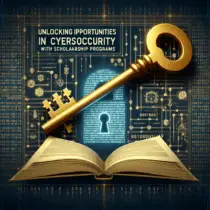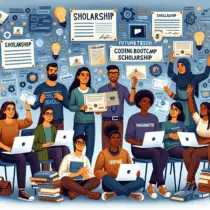Every year, innumerable international students dream of pursuing higher education in the United States, drawn by the promise of prestigious institutions and fruitful career opportunities. However, one significant obstacle stands in their way: financing. Luckily, there are various kinds of financial aid opportunities available for international students. Here, we’ll explore different types of assistance available to lessen this financial burden.
Types of Financial Aid
1. Scholarships
Scholarships are often the most sought-after form of financial aid because they don’t have to be repaid. Scholarships vary based on academic achievements, financial need, extracurricular involvement, or even specific talents.
- Merit-Based Scholarships: These are awarded based on academic or other achievements. Many universities offer these to attract top international talent.
- Need-Based Scholarships: Offered based on the student’s financial situation. Institutions with substantial endowments tend to offer these.
- Specialty Scholarships: Target specific fields of study, talents, or even specific nations. Examples include the Fulbright Program and the £2,500 Newcastle University 2022 Eddie and Elizabeth Thomas Scholarship for Undergraduate Students, which provides substantial financial aid for deserving international students.
2. Grants
Grants are generally need-based financial aids given to students based on their or their family’s financial circumstances. Like scholarships, grants do not have to be repaid. Various international and local agencies, governments, and educational institutions offer grants for international students.
3. Assistantships
Assistantships offer financial assistance in the form of a stipend and/or tuition waiver. Types include:
- Teaching Assistantships (TA): Students assist in teaching undergraduates or grading papers.
- Research Assistantships (RA): Students are paid to assist in academic research.
- Graduate Assistantships (GA): Combines both administrative and academic responsibilities.
4. Loans
Loans are another viable option but come with the responsibility of repayment. Some international student loans do not require a U.S. cosigner. Institutions such as MPOWER Financing and Prodigy Finance offer education loans tailored for international students.
Major Scholarships for International Students
1. Fulbright Foreign Student Program
The Fulbright Foreign Student Program is one of the most well-known U.S. government-funded scholarships for international students pursuing a master’s or Ph.D. degree. It covers tuition, airfare, a living stipend, and health insurance, among other costs.
2. The Gates Scholarship
Funded by the Bill and Melinda Gates Foundation, this scholarship is aimed at high-achieving, low-income students. It covers the full cost of attendance, including tuition, fees, room, board, books, and transportation.
3. The £2,500 Newcastle University 2022 Eddie and Elizabeth Thomas Scholarship for Undergraduate Student
This scholarship is significant for international undergraduates looking to study at Newcastle University. It offers a generous sum of £2,500 to aid in tuition and other academic expenses.
The Drifted Scholarship provides financial support to international students pursuing higher education. This specific scholarship is great for students with a strong academic record, extracurricular achievements, and a need for financial assistance.
How to Apply
Research Early: Start your scholarship search at least a year before you plan to start your studies. Use resources such as university websites, scholarship databases like Fastweb and Scholarship.com, and forums.
Meet Deadlines: Each scholarship or grant has its own deadlines. Keep a calendar of important dates and ensure all documents are prepared well in advance.
Prepare Required Documents: Most applications require academic records, standardized test scores, recommendation letters, and personal statements or essays.
Optimize Your Profile: Ensure that your application stands out. Highlight academic achievements, extracurricular activities, and real-life experiences. A well-crafted personal statement can be the difference between winning and losing a scholarship.
Understanding the Requirements
Academic Excellence: Many scholarships and grants are merit-based, requiring a strong academic record. Be prepared with transcripts and test scores to prove academic prowess.
Financial Need: Some financial aids are need-based. Provide authentic financial records and demonstrate why you require the scholarship.
Specific Talents or Interests: Certain scholarships target specific talents, interests, or courses of study. Align your applications with the scholarship’s requirements.
Documentation: Standard documentation includes academic certificates, identification documents, letters of recommendation, and proof of financial need.
Points to Consider
Currency Exchange Rates: The cost of living and tuition fees can fluctuate based on the exchange rate. Plan accordingly to manage these fluctuations.
Work Opportunities: International students may have limited work opportunities due to visa restrictions. Research your University’s policies on campus jobs.
Living Expenses: Factor in living costs, including accommodation, food, and transport, which can vary significantly from one state to another.
Healthcare: The U.S. does not have universal healthcare. Ensure you have comprehensive healthcare coverage, either from your home country or through U.S. student health plans.
Conclusion
Higher education in the United States is a worthy investment in one’s future, but the path can be laden with financial challenges for international students. However, by utilizing various sources of financial aid such as scholarships, grants, assistantships, and loans, students can significantly ease the burden of tuition and living expenses. Programs like the £2,500 Newcastle University 2022 Eddie and Elizabeth Thomas Scholarship for Undergraduate Students and the Drifted Scholarship epitomize the support available.
International students need to approach their financial planning thoughtfully, thoroughly researching and applying for all available aids. The journey may be challenging, but with persistence and the right resources, the dream of studying in the USA can become a reality.






